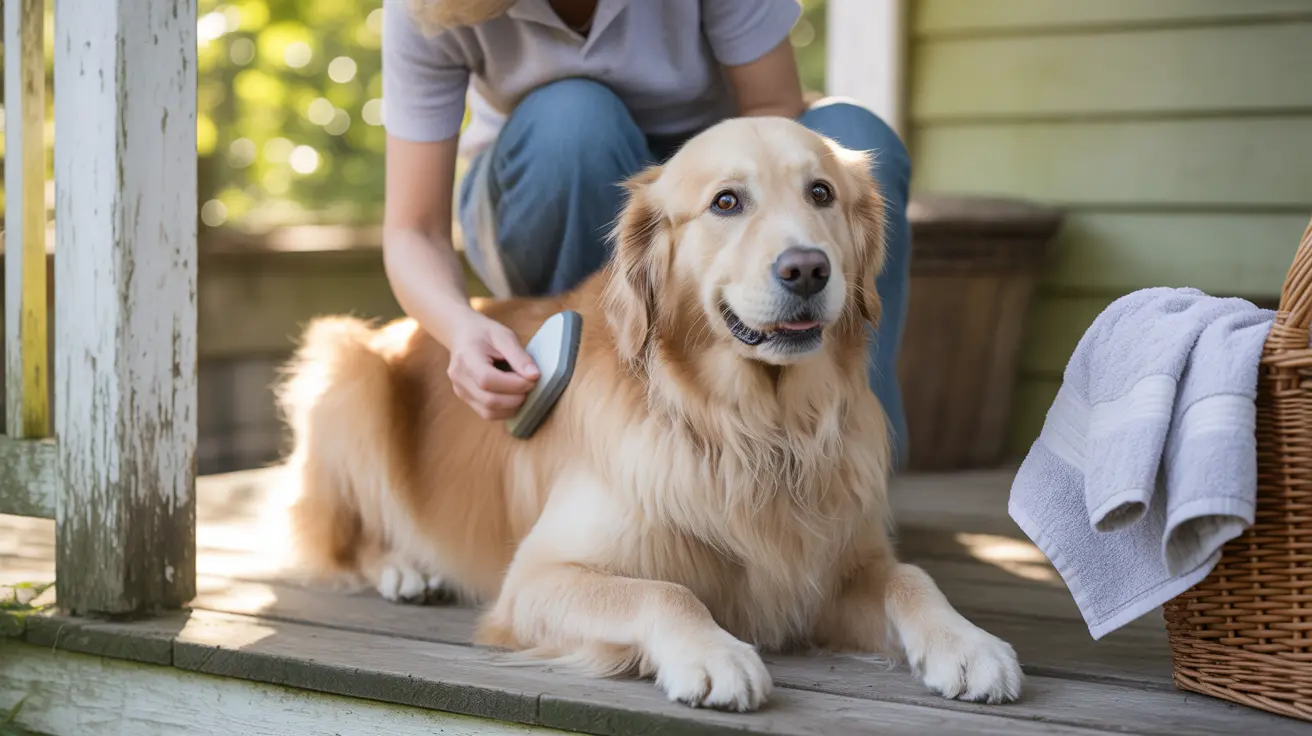Understanding Dog Allergies and Golden Retrievers
Golden Retrievers produce three main allergens that trigger reactions in sensitive individuals: dander (dead skin cells), saliva proteins, and proteins found in their urine. Their thick double coat and frequent shedding make them particularly challenging for allergy sufferers, as these characteristics contribute to greater allergen distribution throughout the home.
The misconception that dog hair itself causes allergies is common, but it's actually the proteins attached to the hair and dander that trigger allergic responses. Golden Retrievers' abundant shedding simply makes these allergens more prevalent in the environment.
Shedding Patterns and Allergen Distribution
Golden Retrievers shed year-round, with two major seasonal "blows" occurring in spring and fall. During these periods, they shed their undercoat in large quantities, dramatically increasing the amount of allergens released into the environment. This natural process, while necessary for the dog's coat health, can make living with a Golden Retriever particularly challenging for allergy sufferers.
Managing Allergies with a Golden Retriever
Regular Grooming and Cleaning
While you can't eliminate allergens completely, there are several effective strategies to reduce their impact:
- Daily brushing outdoors to remove loose fur and dander
- Regular bathing with hypoallergenic shampoo (every 6-8 weeks)
- Frequent vacuuming with a HEPA-filter vacuum
- Using air purifiers in main living areas
- Washing dog bedding weekly in hot water
- Maintaining a regular cleaning schedule for floors and furniture
Creating Allergy-Free Zones
Designating certain areas of your home, particularly bedrooms, as dog-free spaces can provide relief for allergy sufferers. This creates safe spaces where allergic family members can retreat when symptoms become overwhelming.
Medical Approaches to Managing Dog Allergies
Several medical options are available for managing allergies to Golden Retrievers:
- Antihistamines and other over-the-counter allergy medications
- Prescription medications from an allergist
- Immunotherapy (allergy shots)
- Nasal sprays and eye drops for symptom relief
- Regular consultation with an allergist to monitor and adjust treatment plans
Frequently Asked Questions
Are Golden Retrievers hypoallergenic, and why do they trigger allergies?
No, Golden Retrievers are not hypoallergenic. They trigger allergies because they produce significant amounts of dander, saliva proteins, and urine proteins that are common allergens. Their heavy shedding spreads these allergens throughout the environment.
How does the shedding of Golden Retrievers affect allergy symptoms?
Golden Retrievers' frequent shedding, especially during seasonal coat blows, distributes allergens throughout the home. This increased presence of allergens can lead to more severe and frequent allergy symptoms in sensitive individuals.
What are the best grooming and cleaning practices to manage allergies with a Golden Retriever?
Regular grooming including daily brushing, scheduled baths, frequent vacuuming with HEPA filters, and maintaining clean living spaces are essential. Using air purifiers and washing dog bedding regularly also helps reduce allergen levels.
Can allergy sufferers live comfortably with a Golden Retriever, and what medical options help?
Yes, some allergy sufferers can live with Golden Retrievers through a combination of strict cleaning routines, medical treatments like antihistamines or immunotherapy, and creating allergen-free zones in the home. Success depends on individual sensitivity levels and commitment to management strategies.
Which dog breeds are better alternatives for people with allergies compared to Golden Retrievers?
While no dog is truly hypoallergenic, breeds like Poodles, Portuguese Water Dogs, and Bichon Frises tend to be better choices for allergy sufferers as they shed less and may produce fewer allergens. However, individual reactions can vary regardless of breed.
Remember, while Golden Retrievers aren't hypoallergenic, their loving and friendly nature makes them worth the extra effort for many families. With proper management strategies and medical support, some allergy sufferers can successfully share their homes with these beloved dogs.






